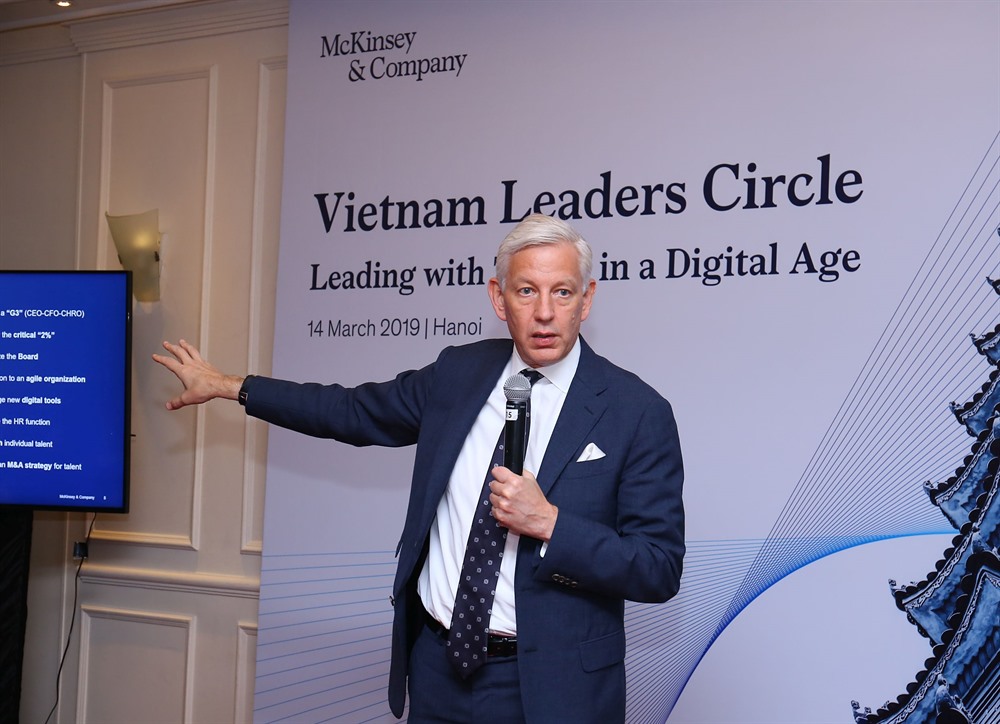 Economy
Economy

Most executives today recognisd the competitive advantage of human capital, and yet the talent practices their organisations use are stuck in the last century, said Dominic Barton, Global Managing Partner Emeritus of McKinsey & Company.
 |
| Dominic Barton, Global Managing Partner Emeritus of McKinsey & Company, shares with Vietnamese firms about human resources in the digital age. — VNS Photo |
HÀ NỘI — Most executives today recognised the competitive advantage of human capital, and yet the talent practices their organisations use are stuck in the last century, said Dominic Barton, Global Managing Partner Emeritus of McKinsey & Company.
Barton, co-author of “Talent Wins: The New Playbook for Putting People First”, made the statement during a meeting with leading companies in Việt Nam held in Hà Nội last week.
“Leaders at talent-driven companies are as focused on their people as they are on strategy and finance. They make talent considerations an integral part of every major strategic decision and ensure that their own focus on talent is woven into the fabric of the entire company,” he said.
He said that the country’s dynamic market had been one of the factors that would enable local organisations and their workforces to become more fluid in adapting to the agile and technologically-driven environment of the 21st century.
“Companies in Việt Nam must realise that managing talent is incremental. Alignment at the top; continuous effort to develop talent; a commitment to link talent and strategy; creation of an agile corporate structure – all these when built one upon the other, will trigger a multiplier effect that can exponentially increase value to the organisation and the economy,” he added.
“Rapid advances in digital technologies will change the nature of our work – people will need to perform activities that are complementary to the work that machines do. This will have to go hand-in-hand with a concerted reskilling effort which McKinsey’s research has found could affect up to 4.4 million people in Việt Nam by 2030. Businesses and governments alike will need to rise to the challenge and take advantage of the opportunities, prioritising embedding new digital skills to support a workforce transition of this scale,” he said. — VNS




